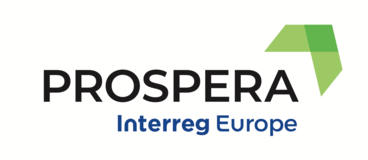The first study visit of the PROSPERA project, held on the 1°of December in online mode, exceeded our best expectations.
The fact that the study visit was organised online due to anti-Covid 19 restrictions allowed us to involve more local actors than a study visit on the field and so did our project partners.
At local level, the stakeholders who took part in the study visit were:
- two farmers’ associations; Coldiretti and Confagricoltura
- “Pause Atelier dei sapori”, an integrated system with a restaurant, a cafeteria and a shop that combine food, culture, research and innovation.
- the University of Modena and Reggio Emilia
- the High School “Zanelli”
- the Agronomic association of Reggio Emilia
- the no-profit association “Università verde”
- The C.R.P.A. (Research Centre an Animal Production)
All good practices presented by Ghent were received with interest by local actors.
First of all, the discussion among PROSPERA's stakeholders, opened by the Deputy Mayor for environmental and sustainability policies, Carlotta Bonvicini, focused on the similarities between the actions and projects undertaken by the city of Ghent and those of the city of Reggio Emilia. In the words of the Deputy Mayor Bonvicini: “Gent seems to us a very inspiring city to relaunch our food production and consumption system, as well as the connections with rural and inland areas - in line with the Mab UNESCO project - and the enhancement of new skills and resources for our city”. It is no coincidence that the Ghent study visit was welcomed with great enthusiasm by both the farmers’ associations and the local actors operating in the food sector.
Secondly, we wondered how the multi-stakeholder approach proposed by Ghent in building a coordinated food policy strategy could be transferred also in our territory. In particular, the governance model of the Food Policy Council has been considered by our stakeholders of great interests, as well as the VANIER B2B platform, with the idea to better connect also in our territory local food producers with the hospitality sector, and the awareness campaign to promote sustainable food consumption among citizens.
Finally, some reflections emerged regarding the good practice called "open call Afsnee”: we discussed the economic sustainability of this project and how it may be adapted in the local rural context. Stakeholders also appreciated the actions taken to create green areas available to citizens. In fact, during the lockdown the need for more green areas was also felt by the citizens of Reggio Emilia.
Even if this study visit was held online, thanks to the methodological support implemented by ILVO, it has been incredibly fruitful and we look forward to further exploring the city of Ghent approach and experiences.

